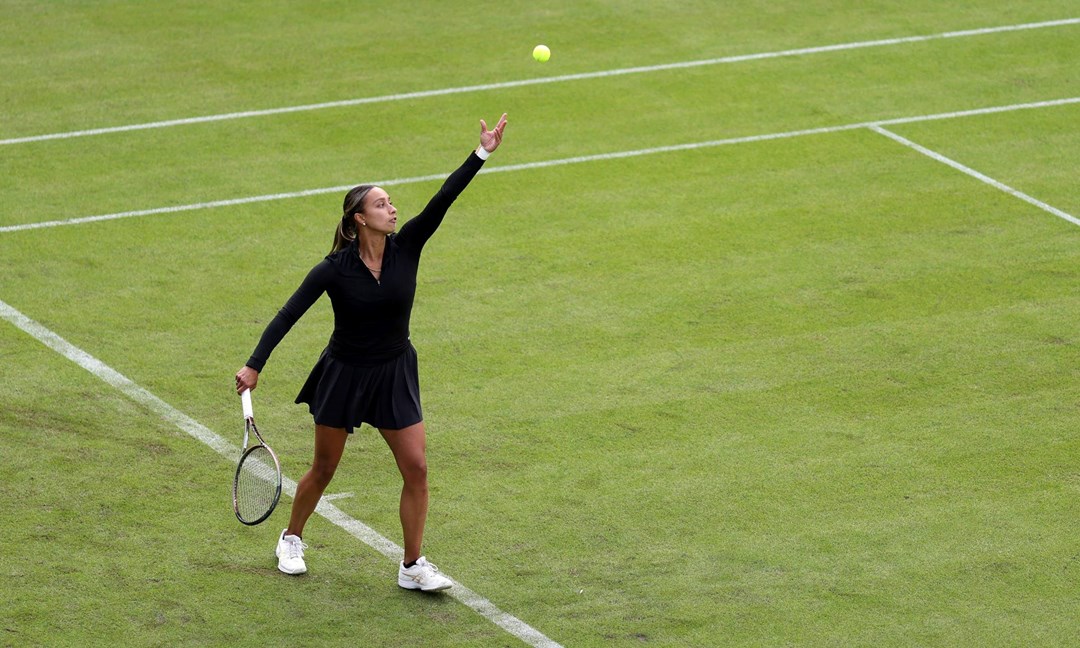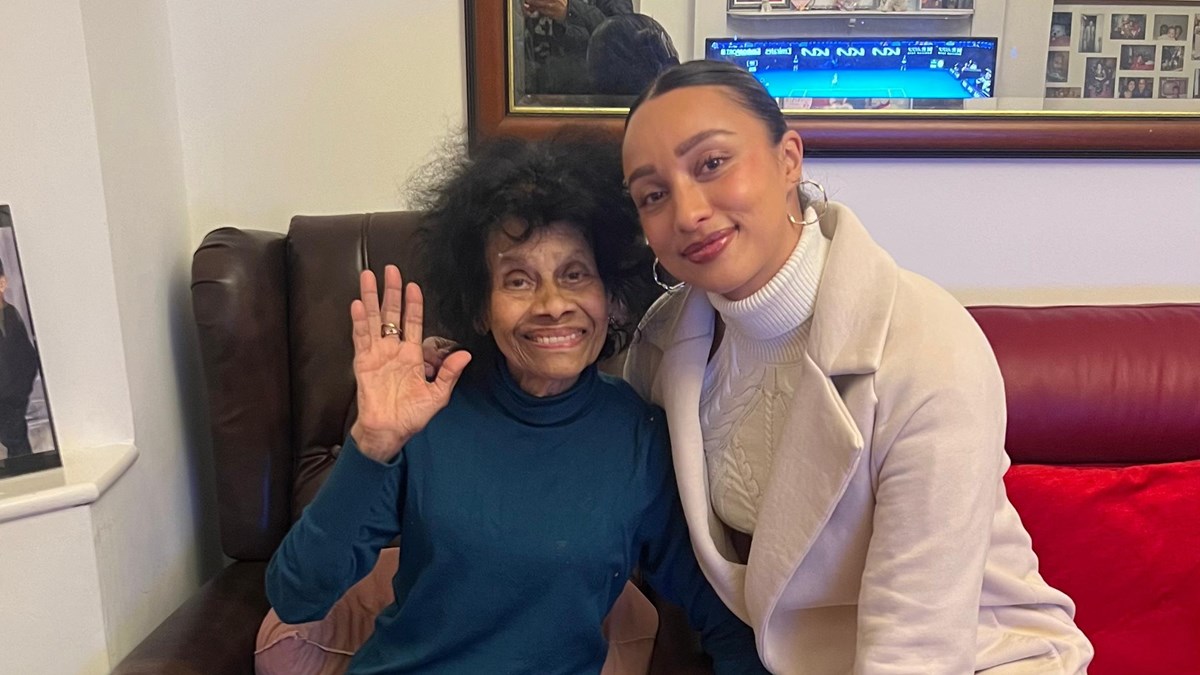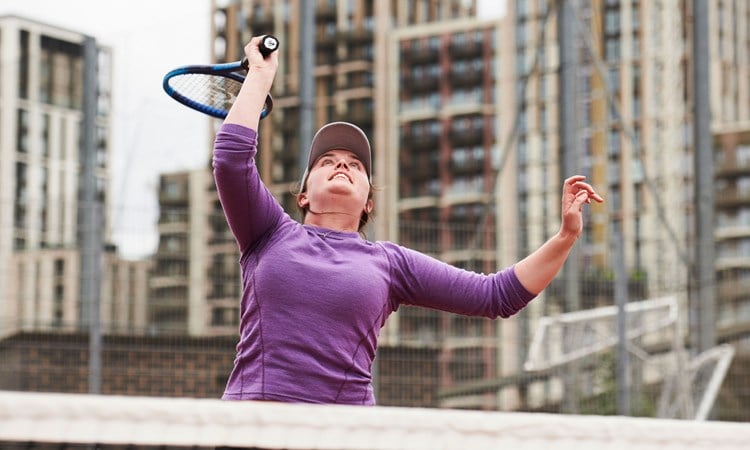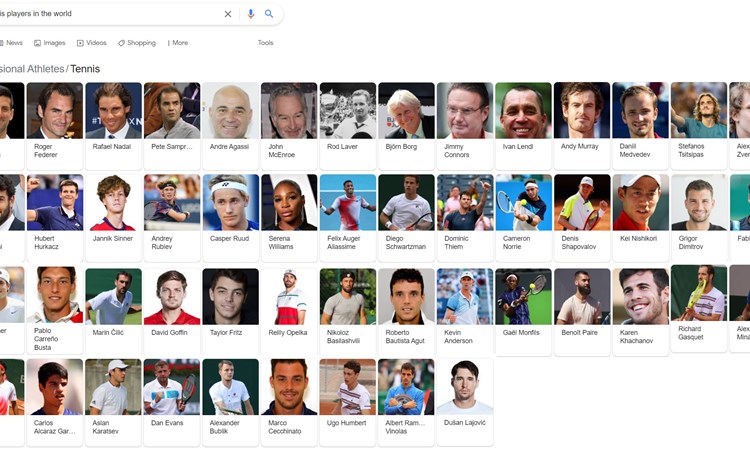
Eden Silva on how Sri Lankan heritage shaped her as a tennis player
• 3 minute read
Eden Silva has spoken about how her Sri Lankan heritage has shaped her as a tennis player and helped her through difficult struggles in her life.
Silva, an accomplished singles and doubles player, began playing tennis at the age of six. She made her Wimbledon debut in the 2012 Juniors competition and enjoyed a run to the mixed doubles quarter-finals with Evan Hoyt in 2019. Now ranked as British No.8 in doubles, this year she reached the final of the Lexus Ilkley Open alongside Vitalia Diatchenko.
But life hasn’t always been easy for the 29-year-old who talks candidly about how her journey so far has made her a stronger person.
Silva said: “When I was 18 years old, I tore my ACL, which for a lot of people is a career ending injury. It was hard to have faced that at such a young age when I was just starting to climb up the ranks and feel confident.
“It sort of came out of nowhere and all of a sudden I had a huge mountain to climb. That injury took a year and a half out of my career and out of my life. It was a tough time because I didn't know really who I was without tennis. I look back now and even though it was an extremely tough time in my career, it definitely helped me build a stronger character.”
Silva says her Sri Lankan heritage has played a key role in her life and how she was able to respond to this difficult time – citing her Nan and Dad as influential role models.
Silva's Grandma on her Dad's side is Sri Lankan and she and her Grandad came over to the UK in the early 60s and worked their way up from a working class family.

She said: “My Nan has always been my hugest fan in tennis. Growing up she would come to all the tournaments with me and my dad, supporting me. She was always very loud!
"She’s a very independent, proud, stubborn woman – I think I got a lot of that from her and that's a big part of Sri Lankan culture. When it comes to tennis, I think that's a big part of being stubborn and having a sort of never, say, die attitude.
“That same resilience and stubbornness I see as one of my main character traits. My Dad also carries those traits. He was extremely tough on me when I was younger with my tennis and coached me pretty much my whole life. I'm super grateful for all his dedication and I appreciate the role he played in my life at such a young age.
"I consider myself quite a strong young woman now, and I do think that it's 90% down to who I was surrounded by when I was younger and when I was facing all those tough times.”
Silva says this strength has also helped her handle other challenges such as online abuse although she hopes that things will improve in the future.
Hopefully if they see people like me playing tennis, being able to succeed and travel the world, that will give them a little bit more motivation and inspiration to start the sport.
“Even now as a young Asian woman playing a sport, you do get a lot of hateful messages after matches and losses," she added.
"I think you sort of build a thick skin over the years. You're always going to face racism and hate. Being someone in the spotlight you sort of have to put it to one side, but I think that I'm happy that I was able to be around strong characters over my life and that's helped me deal with that in a better way”.
On a lighter note, another huge influence in her life has been Sri Lankan food culture.
She said: “Food and generosity are a huge part of Sri Lankan culture. You say you're popping around to friends or family for 15 minutes and they've cooked a huge meal for you with about five or six different dishes. That sort of hospitality, kindness and generosity is a huge part of what has been instilled in me, and that's helped me grow as a woman along the way. These values have been kind of implemented into the tennis side of things as well.”
Silva is passionate about using her life and sporting experiences to promote and support the participation and involvement of people from ethnic minorities in sport.
“I would 100% love to see more people from ethnic minorities and ethnic backgrounds start to get involved in tennis," she commented.
"It's a bit daunting at first, but once you get going and you meet people, there are always people that want to help and will try to support.
"Hopefully if they see people like me playing tennis, being able to succeed and travel the world, that will give them a little bit more motivation and inspiration to start the sport. I think hopefully it's going in that direction.”
As part of this, moments like South Asian Heritage Month play a key role in raising awareness of the contributions of South Asian athletes in the UK, she says.
“I think it will highlight the people that are already playing sports and competing at a high level, travelling the world and maybe bring a bit more of a spotlight to the situation.
"Hopefully this increased awareness will inspire people to take up tennis once they see how many athletes of South Asian heritage are playing at an elite level and making a living out of playing a sport. I hope I can give more people the confidence to take that next step.”
Asked what her message would be to anyone from ethnic communities thinking about giving tennis a go she said: “I'd say do it. I mean, you have to be patient and commit time to practising and learning the game but it’s worth the effort! It's a sport that can consume your life but it is also extremely rewarding in so many ways.
“I've been lucky enough to travel the world, playing my first international tournament at the age of eight in France. I’ve met new people and it's taught me discipline, hard work and dedication.
"I would definitely encourage anyone who's remotely interested just to start taking some lessons, then do some squads and try and compete in as many tournaments as you can and see if it's the sport for you.”
Tennis opened up
Learn more about our inclusion strategy and how we are opening up tennis to all ageas, abilities and backgrounds.





